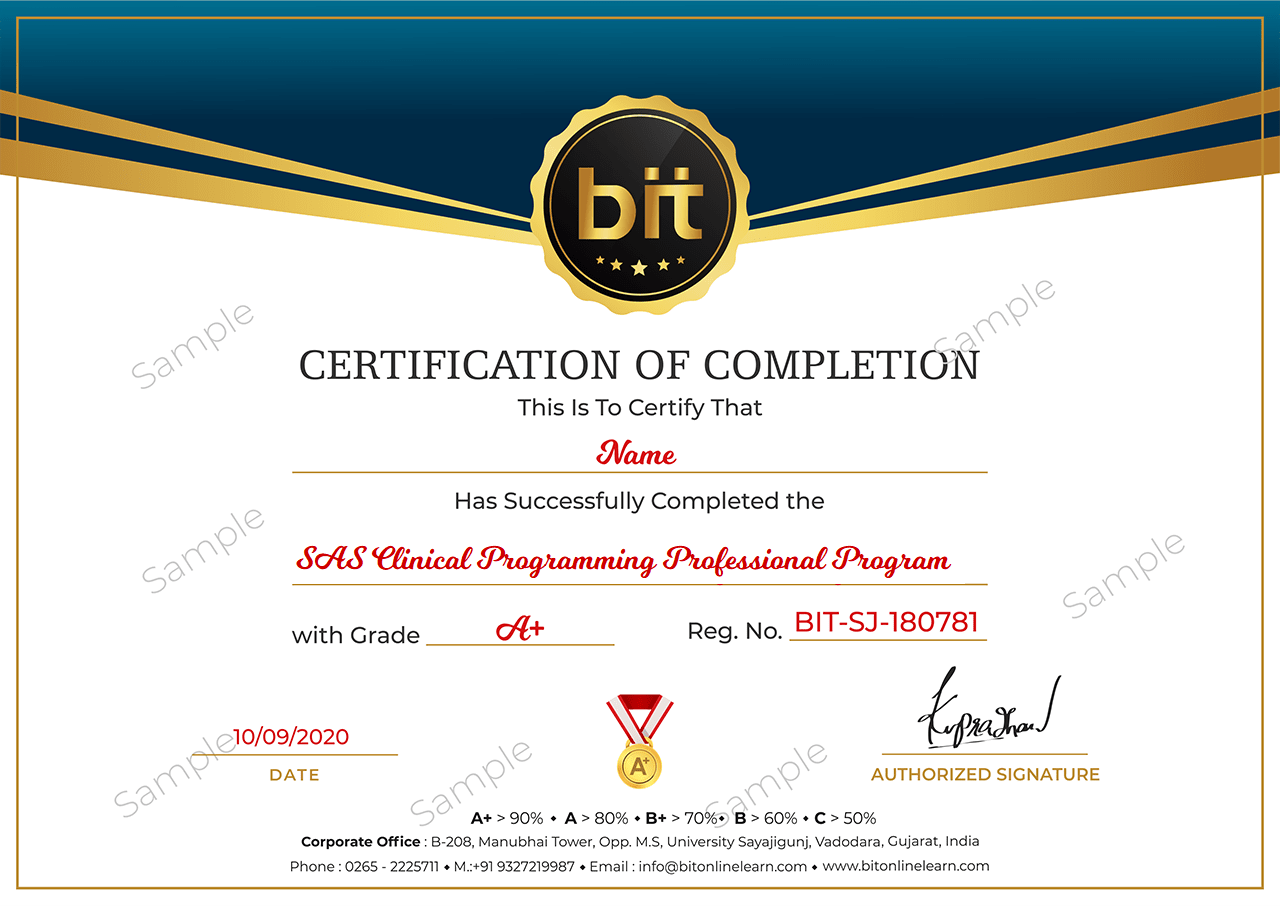· Randomized Clinical Trials
· Uncontrolled Trials
· Protocol Development
· Endpoints
· Patient Selection
· Source and Control of Bias
· Randomization
· Blinding
· Sample Size and Power
· Practical Exercise


BIT’s SAS Clinical Professional Online Training Course that is designed to train students in applying SAS programming skills to clinical trials. SAS Clinical training provides insight on the practical aspects of clinical trials. How to design, analyze and generate reports are explained in support of real time data. The skills of writing SAS programs, importing/exporting data and transforming it further for performing analysis on it is imparted by the industry experts. The training will equip the candidates with theoretical knowledge, practical experience, detailed description of programs, and key techniques involved in the clinical trial analysis.
SAS is a statistical analysis software suite for advanced analytics, data management, and clinical trial data analysis. You can use SAS software through both a graphical interface and the SAS programming language for various data analysis. Clinical SAS programmers have a lot of demand in the industry. In the clinical industry whenever any drug is released into the market that drug needs to get approval from FDA or equivalent regulatory bodies. To get approval clinical trial data analysis needed. Only SAS programmers can do clinical trial data analysis. There is a huge scope of SAS for a fresher and experienced person.

Copyright Bitonlinelearn © 2021. All Rights Reserved | Design and Developed By BITINFOTECH